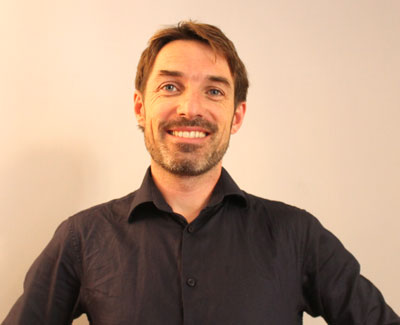
John Keane has worked in the off-grid solar sector for many years and was SolarAid’s second employee, more than a decade ago. John first lived in rural Tanzania 17 years ago and learned first hand what it’s like to exist without access to basic forms of infrastructure, beyond the electricity grid. Since this time, he has devoted his professional career to changing the unacceptable reality, where over 1 billion people live without access to lighting and electricity.
John held many roles at SolarAid and SunnyMoney over the years and, following a year working with GOGLA (Global Off Grid Lighting Association) focusing on consumer protection and product quality issues, he has returned to SolarAid as our new CEO.
When we kicked off SolarAid with John’s help, more than 10 years ago, there wasn’t really what you could call an ‘off-grid solar sector’. There was our fledgling team and not a lot else. Nobody was really trying to tackle the challenge of rural electrification and small solar lights were not on the agenda.
SolarAid has played a leading role in changing that, impacting over 10 million people and catalysing markets in Kenya and Tanzania along the way. Now, finally, Sustainable Development Goals 7 calls for “universal access to affordable, reliable and modern energy services, by 2030”. This is a huge challenge.
Today an off grid industry has formed to tackle the issue, but it is going to take a monumental effort if we and the wider sector are going to achieve this. John says,
“I found the fact that over a billion people were forced to burn kerosene and candles for basic forms of lighting 17 years ago unacceptable. The truth is, while much has been achieved over the past decade, with great leaps in technology and innovative business models bringing solar lighting to more and more people, I believe that business as usual means that hundreds of millions of people will still be forced to burn kerosene and candles in 2030. That will be truly unacceptable, as Jeremy highlights in The Test, and, frankly, unnecessary… as the solutions exist. Solar lighting and power exists.”
The issue of “access to reliable, modern energy” is not something we don’t know how to solve, we simply lack the funding and resources to do so. If the sector, and the wider global community, can not find a way to deploy the requisite resources to solve the issue by 2030, as the SDGs demand, we will have failed a very embarrassing test.
“Our job is to do everything we can do to avoid that future reality. Our job is to reach people others are not able to reach. Our job is to do whatever it takes to bring access to those who will otherwise be left behind.
It is my sincere hope that by 2030, SolarAid will have been consigned to the history books because everyone will have access to clean, reliable light and power.
We are going to need help to achieve our objectives, from the public, governments, industry groups and finance experts, but there’s no reason why we can’t solve this problem if we work on it together. Please join the movement – together we can eradicate the kerosene lamp from Africa and create a world where everyone has access to clean, renewable energy.
I ask you to remember this challenge when you flick the switch at home tonight …and every night, until we get this done.”
SolarAid is extremely proud to welcome John back into the fold and looking forward to ‘the new era’!